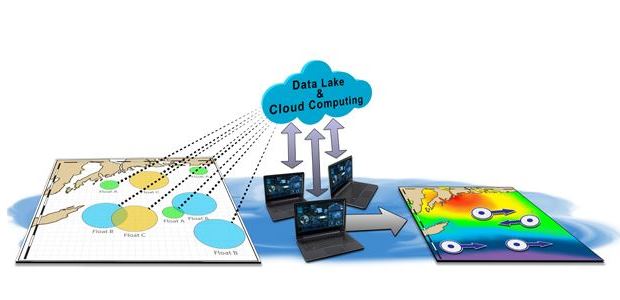
DARPA 'Ocean of Things' Proposers Day Set for Jan. 4
The idea is for "smart floats" that would contain a suite of commercially available sensors to collect environmental data such as ocean temperature, sea state, and location and also data about commercial vessels, aircraft, and even maritime mammals moving through the area.
DARPA has announced a Jan. 4 Proposers Day for its Ocean of Things program, a new initiative to make possible persistent maritime situational awareness over large ocean areas by deploying thousands of small, low-cost floats that could form a distributed sensor network. It's similar to the Internet of Things concept for real-time monitoring and tracking, but currently, tracking of maritime activity is not possible over most parts of the open ocean, according to the agency.
The idea is for "smart floats" that would contain a suite of commercially available sensors to collect environmental data such as ocean temperature, sea state, and location and also data about commercial vessels, aircraft, and even maritime mammals moving through the area. DARPA's release said the floats would transmit data periodically via satellite to a cloud network for storage and real-time analysis.
"The goal of the program is to increase maritime awareness in a cost-effective way," said John Waterston, program manager in DARPA's Strategic Technology Office. "It would be cost-prohibitive to use existing platforms to continuously monitor vast regions of the ocean. By coupling powerful analytical tools with commercial sensor technology, we plan to create floating sensor networks that significantly expand maritime awareness at a fraction of the cost of current approaches."
According to the release, the technical challenges for Ocean of Things are float development and data analytics.
The Proposers Day will take place in Arlington, Va., at the DARPA Conference Center. Registration instructions and further details are available at https://go.usa.gov/xn552.